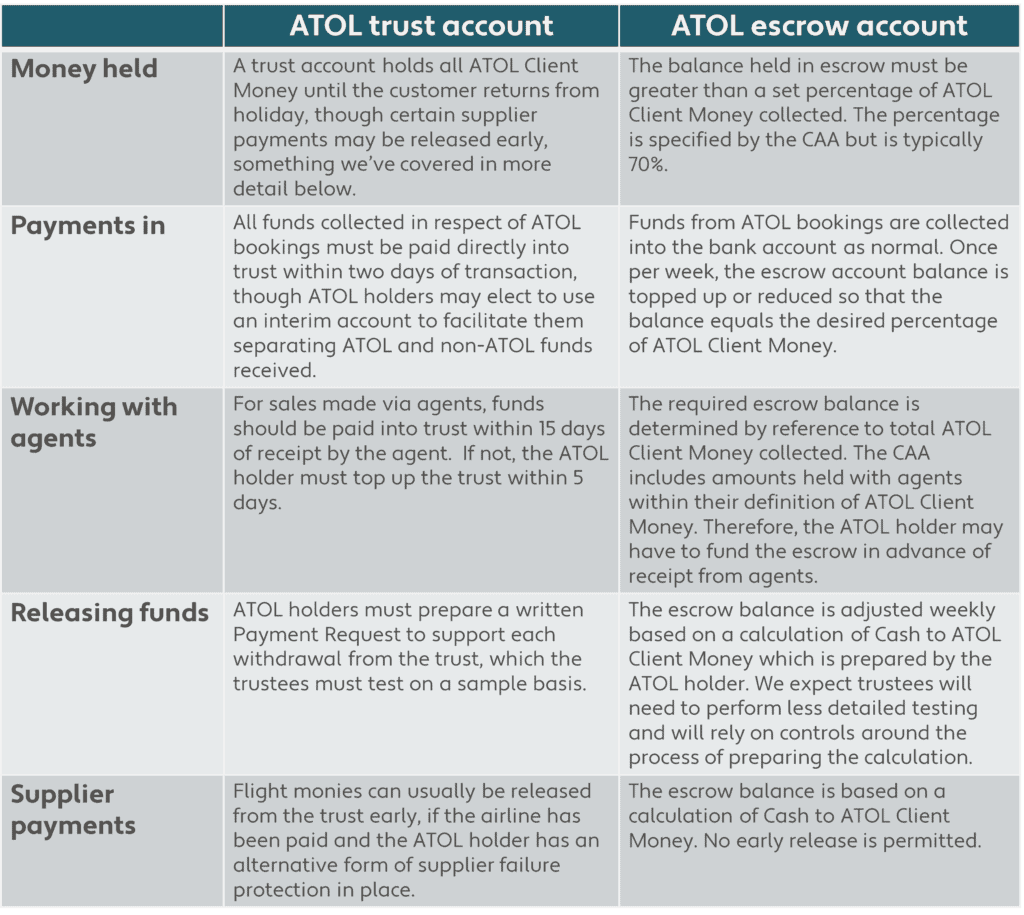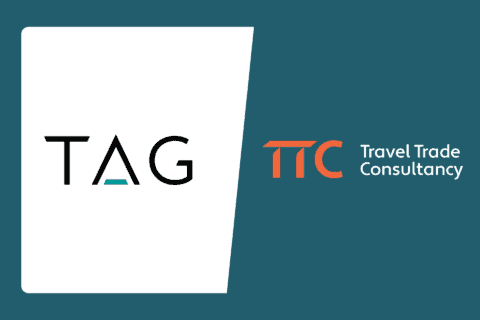The CAA seems to have already made up its mind about one thing: we’re seeing more and more ATOL holders being pushed into segregating customer funds as a condition of renewing their licence.
Trust accounts are the most well-known way of achieving this but they aren’t the only option. In 2021, the CAA introduced an escrow account solution.
There are many similarities between an ATOL escrow account and an ATOL trust account. For example, they both share four basic characteristics that we’ve discussed previously. However, there are several important differences in the way they operate particularly in these five key areas:

The best option for your business will depend on a whole range of factors, including your average flight cost as a portion of the holiday price; the availability of airline failure insurance; the proportion you sell through travel agents; and the timing and value of deposits collected and supplier payments.
We’d be happy to help you model, decide and implement the right solution for you. If you would like to talk to us about trust or escrow accounts, please get in touch.
If you enjoyed this post, why not sign-up for our newsletter? Get our latest blog posts, industry updates and exclusive content. Join our mailing list further down the page.



